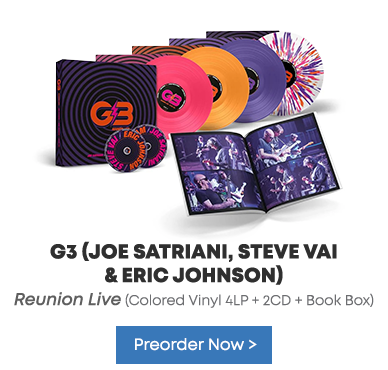There are plenty ways to tour America's great urban areas. But if you can't swing a road trip, a key way to learn about a location's soul is to embrace its music. The twin cities of Minnesota, St. Paul and Minneapolis, are no exception. Many point to the 80s and 90s as the region's musical heyday. It's when the likes of the Replacements, Soul Asylum, and Hüsker Dü stretched rock's boundaries, and Prince used his guitar to reshape the course of pop. This month, Omnivore Recordings will reissue Soul Asylum's first two albums for the then-local Twin/Tone label – Say What You Will...Everything Can Happen and Made to Be Broken. The news makes us wish to jump back in time to visit the city's famed First Avenue club. Absent a time machine, here we look back at five must-have rock albums from the Twin Cities.
The Replacements, Let It Be
One of the most cherished albums of the 80s, Let It Be, along with work from ‘Mats contemporaries Hüsker Dü, added a wallop of melody to reckless and raucous punk rock. The Replacements' third album still feels alternately transitional and ahead of its time, as songs such as "Unsatisfied" and "Answering Machine" present a grown-up perspective alongside lighter, louder fare such as "Tommy Gets His Tonsils Out." Consider it a coming-of-age statement from a group maturing either in spite of itself or against its will. Every bit of the record is sharp, both sonically and topically. For instance, "Favorite Thing" hurriedly cycles through a host of hooks while "Androgynous" foresaw an era of gender fluidity.
Soul Asylum, Made to Be Broken
Dave Pirner's group was heavily overshadowed by the Replacements and Hüsker Dü in the early 80s, but Soul Asylum would eventually go on to score much bigger fame in the 90s thanks to the wild success of the rock ballad "Runaway Train." The latter seemed to forever alter the course of the band, with each subsequent album softening the act's edges. But 1986's Made to Be Broken possesses plenty of venom. See the wailing of "Tied to the Tracks," in which the guitars and drums seem to trip over one another, or the bitter country stomp of "Never Really Been." While Pirner's vocals often appear to outpace the music, such folksy trappings lend Soul Asylum a sense of warmth.
Hüsker Dü, Zen Arcade
It's hard to think of another early-to-mid 80s band as responsible for birthing the alt-rock movement as Hüsker Dü. Maybe the aforementioned Replacements, or perhaps R.E.M., but the template for the American rock underground rests with Zen Arcade, a masterpiece of a concept album that takes punk and hardcore in multiple genre detours. The work from guitarist Bob Mould, the late drummer Grant Hart, and bassist Greg Norton remains blunt, direct, and haphazardly tuneful. Key to its success: The songwriting competition between Mould and Norton, with each upping the other's game and pushing the album into acoustic, psychedelic, and anthemic realms. The tale – of a young man suffering through life in a broken home only to find the world outside of suburbia is even worse – gets reflected in music that veers from angst-ridden to surrealist, with the effect serving as a coming-of-age panic attack.
The Jayhawks, Sound of Lies
Considering this mid-90s album remains the first for the Jayhawks without celebrated songwriter Mark Olson, it would be easy to go into it with decreased expectations. Indeed, many critics at the time found it rather sleepy, but it's ripe for rediscovering. With Gary Louris as the principle songwriter, the set largely projects a melancholic, reflective tone. "A has-been at a mere 35," Louris sings on "Big Star," a tune about fading dreams and stubborn commitment. It doubles as the album's backbone, as Sound of Lies is the sound of a band fighting its way forward – so much so that some songs feel heavily labored. The vocal hooks of "Think About It" should be euphoric but the guitars weigh down the "woo-woo" rejoinders and the tune gives way to wistful strumming. Not that such remarks function as criticism. After all, this is a work about having already come of age and now having to ask a more grave question: Now what?
Prince, 1999
So maybe Prince wasn't a full time rock n' roller, but his early 80s albums elude classification, touching on funk, R&B, and more. Prince's guitar resides at the heart of those efforts, and it's all over 1982's 1999. There it is bringing a sense of arena-rock grandeur amid the electro-pop funk of "Little Red Corvette," and there it is again shimmying amid heartache on "Lady Cab Driver." And then there's "Delirious," in which a feather-light guitar adds a tinge of rockabilly to the zany, cartoonish synthesizers and keyboards. So no, Prince may not have been a rock n' roll artist, per se, but he's on this list for a couple reasons. One, because no genre can claim him, and two, like Minneapolis' best artists, Prince wasn't content to simply stick to one style.
20th Jul 2018




































